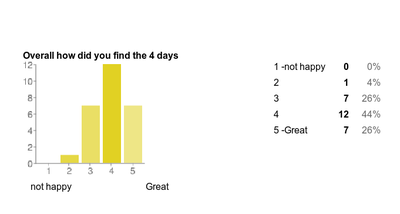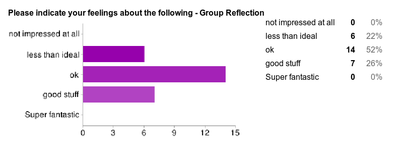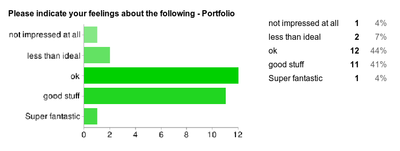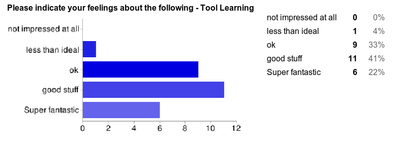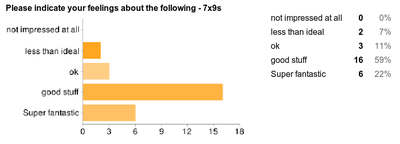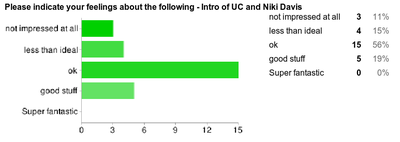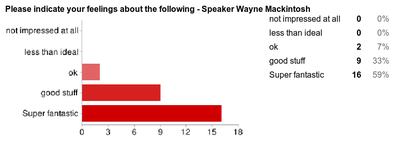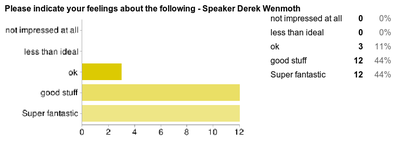SCD/Milestone Reports/Resources, Documentation and Downloads/Milestone 1 11 June 2010
Purpose
The purpose of the milestone reporting process is:-
- To provide clusters with the opportunity to reflect in a focussed way on their progress and to inform their future planning
- To provide National facilitators with an overview of cluster programme progress so facilitators can support the formative learning processes
- To provide the Ministry of Education with information to evaluate the ICT PD national programme; allowing the identification of issues and trends and exemplar practice.
- To provide the Ministry of Education with evidence that an individual cluster is complying with the contracted agreement.
NOTE: The Ministry of Education can suspend payments if a satisfactory milestone has not been submitted by the due date.
Submission of milestone
The milestone report should be drafted in document format (e.g. Microsoft Word, Open Office, Google Docs) by the cluster leadership team for ease of sharing with cluster schools and the National facilitator.
The draft milestone should then be emailed to or shared electronically with the national facilitator assigned to your cluster at least 14 days before the milestone due date.
Once approved by the National facilitator you need to do the following:
- Rename the approved version of the milestone according to the following format:leadschoolname_contract number_milestone numbere.g. regionalclusterone_10-0132_M1
- Create a PDF of the approved version with the same naming formate.g. regionalclusterone _10-0132_M1.pdf(Use of the PDF format means that no further edits can easily be made to the milestone. Word processed documents can be converted to PDF format using Adobe Acrobat or with free distributions such as PrimoPDF. Mac OS allows the creation of PDF’s from the Print Dialogue Box. Google Docs allows you to download the file in PDF format)
- Email the final version to the following people:
- the Ministry ictpd.programme@minedu.govt.nz
- your national facilitator
- all cluster principals
- An alternative courier address is provided on the milestone template for rare cases where email may not be practicable (e.g. firewall or file size issues). Clusters can courier an electronic version of the milestone report on CD-ROM or Flash memory drive.
If you have not received acknowledgement of the safe delivery of your email within 3 working days please contact the Ministry at ictpd.programme@minedu.govt.nz
Response to milestone
During the development of your milestone your National Facilitator will support you with formative feedback on the process that will help you to gauge your progress so far and future steps. Copies should be circulated by the lead school to all schools within the cluster. Once they have approved your report it should be circulated to all cluster schools and then forwarded to the Ministry of Education.
When the report has been approved by the Ministry of Education a formal letter acknowledging the report will be sent to the Principal of the lead school/Project Director.
| Milestone Number: | 1 |
| Regional Cluster Name | Southern Central Divide |
| Contract Number | 10-0279 |
| Lead School/Legal Entity | Waimate High School |
| Date | |
| National Facilitator | Warren Hall |
| Project Director/s | Trevor Storr, Vicki Smith, Darren Sudlow |
| Facilitator/s | Trevor Storr, Vicki Smith, Darren Sudlow |
Milestone 1 Tasks
1.1 Liaise with the National Facilitator assigned to this project;
Communication with our National Facilitator (Warren Hall) has taken place as and when needed by both parties. In all cases, Trevor Storr, the cluster person responsible for communications with the National Facilitator, has communicated with Warren. Communication has been in the form of email, telephone and skype conversations and has generally been concerning the following topics:
- communication with other clusters
- protocols for communicating and sharing cluster PD between regional clusters
- suggestions on communication strategies within our cluster
- protocols for producing and sharing milestone reports (this milestone is produced in Wikieducator and so is publically available)
- milestone templates
- Attendance at SCD governance meetings
In all cases, the response of Warren has been timely and his comments responsive, thoughful and helpful.
| What did we do? | Who was involved? | What was the outcome? |
|
|
|
1.2 Report on the outputs for Programme Outcome A for this milestone period as detailed in Schedule One:
Programme Implementation
| Programme Outcome A: Blended learning programmes of study are constructed that enable personalised learning | ||
| What did we do and how often? | How successful were we? |
|
|
The four days were designed to
Immediately after the 4 days we made available a google form to gather data from participants about their experience of the PD. The overall response from participants was good with 96% scoring the 4 days as 3/5 or better and 70% scoring it 4/5 or better. Teachers valued learning how to use new technologies. for example, when introduced to Mahara the ePortfolio software, 87% ranked the experience as 3/5 or better. When introduced to Moodle and eXe the figure was 96%. Particpants were less enthusiastic about reflecting on teaching and learning The data shows that by the end of the project most teachers had some understanding of what blended learning involved and progress had been made on learning online tools that would help achieve that. While most found the four days extremely challenging the vast majority saw the PD as an enriching experience. |
Teachers found took time to adjust to a model of PD where they weren't spoon fed. We ended up balancing things somewhat by providing some more direction with tasks after the first day. Once teachers got to know each other they felt more comfortable working helping each other. We had some challenges with the network at the University of Canterbury with some not able to get their wireless connected. We were able to take individuals down to see the technician who helped, but a few had continued problems. We will need to consider location for the next face to face PD and ensure their is a robust network. There was angst about the University course amongst some teachers, who were worried about the level of work it might entail. There was also some communication breakdown prior to the PD, because some teachers weren't even aware that the project involved a postgraduate qualification. Clearly, some principals weren't forwarding on the correct information or teachers were thoroughly reading documentation that was provided. After much discussion and clarification from Niki Davis teachers left knowing exactly what was required. Some left still feeling a bit nervous about possible workload. |
|
In response to survey requests for practical help with online tools we decided to offer voluntary PD sessions run through VC after school on selected dates. These were repeated three times to give teachers adequate opportunity to attend one of them. The first series of session focused on further Mahara support, especially with reference to sharing a view, and clarification of the various online areas for the project (which includes Wikieducator, two Moodle courses and Mahara). The second series focused on Moodle with each ePrincipal offering a different session running in the same time slot, but repeated each time. Session were on:
The last series is still to run and will likely focus on tools like Google Apps and Exe. This session have been extremely value and the first series helped clarify many issues teachers had. The first series was extremely well attended (almost all the teachers) and although less have come along to the Moodle PD it has been a valuable opportunity to connect for those who did attend. It also showed the project leadership was being responsive to requests. |
Apart from some dates being changed and a few minor trechnical problems with inexperienced VC users, there have been no real issues with these sessions |
|
The UC course is the glue that ties the the various parts of the project together and continues that online engagement of the teachers. Niki Davis has created a tailor made course on blended learning where she is able to use her expertise in online learning to lead the teachers in this. The ePrincipals act as facilitators in trying to engage and support the teachers. In the first few months an emphasis has been on getting teachers discussing key issues and ideas in the discussion forum. Teachers have four key tasks to complete in the course
The course is going reasonably well and some interesting online discussions that have taken place between teachers around 21st century learning. The design of the course allows teachers the flexibility to work on it when time allows them and also includes a fast pacers group who want to push themselves. Teachers are beginning to get an understanding of what blended learning could like in their classroom and some good examples are already developing (see blog) |
There have been some challenges with the course. This groups of teachers is diverse in many ways, including their expertise in using technology in the classroom. Online learning is quite alien to some of them and being an online learner has taken some getting used to. Some teachers have found the course confusing and lacking clarity. Others feel quite overwhelmed by it all and have had difficult in prioritising what actually needs to be done. Some of this comes down to how unfamiliar it all is, but also how much time teachers are putting in orientating themselves. Niki has been very responsive to problems and it has been the job of ePrincipals to keep in contact with the teachers and feed problems on to Niki. The leadership team meets as a group each month to work through these sorts of problems All teachers have the issue or workload and time, but some more than others. One of the challenges for them has been to make sure they prioritise the course amongst everything else they have to do in the school day. Time is an issue for the primary teachers who on ly have one release period a week. Most principals have been aware of these issues and are willing to provide extra time for a teacher when it is needed. |
Report on the outputs for Programme Outcome B for this milestone period as detailed in Schedule One
Programme Implementation
| Programme Outcome B: Establish a sustainable community of practice that uses a blended approach to learning | ||
| What did we do and how often? | How successful were we? | Did we have any issues or have to change what we planned? |
| See outcome 1 - PD at UC
|
As above the community was initially established with a face to face opportunity based at Canterbury University which established the community and its way of wporking.The Facilitators have been providing a balance of structure and flexibility which has challenged the usual approach to group PD. Demonstrating the thinking and desired outcome as the process strongly modelled the approach to teachers. The success of this is reflected in the online community and is supported by the developing trust in the community itself. |
As above there was an initial resistance to the change in practice required by the group - this coupled with being responsive to feedback has helped strenthen the outcome |
| See outcome 1 - PD by VC |
The feedback from these sessions has been very positive both in terms of numbers attending and response to format by teachers. |
As above there has been some confusion around conflicting dates. This was remedied and discussed will lead to a stronger participation in the planning by the teachers. There was an initial PD required within some schools on use of VC to access help. |
| Online activity in UC course and Wikieducator |
There is strong evidence of the developing Community of Practice in the online environments set up to support the work for the SCD cluster. Forums are used to discuss issues, seek PD and develop processes for use as a community. The online environments have been suppported by VC and visits by the facilitators which informs the development of the the next iteration of PD. |
There were initial problems with the online environments and which was required for what purpose. As above clear communication across groups and a clear message for the participants has helped iron out what were essentially teething issues with the development of the community of practice. |
- Report on the outputs for Programme Outcome C for this milestone period as detailed in Schedule One
Programme Implementation
| Programme Outcome C: School systems and structures have been challenged and some change has occurred | ||
| What did we do and how often? | How successful were we? | Did we have any issues or have to change what we planned? |
| Interviews with Principals
|
Individual meetings with Principals have highlighted the progress on the SCD cluster and included discussion on the impending schools review. Feedback indicates this is welcome process and will lead to positive change. |
No issues feedback has been very positive. |
| Principals Cluster meetings |
Progress reports have been made to individual Cluster meetings. These have highlighted progress and issues that need addressing which would indicate the early promise of systematic change. |
Component schools are so far responding positively to the developments within the cluster project |
| Institutional Review |
An important part of the UC course undertaken by the teachers is to assess the 'eReadiness' of their instution this is still underway and will inform response to the next milestone. |
This is only just beginning full details will emerge in future milestones |
| "Blue skies" meeting | The facilitators have met by Audio conference to discuss ideas and put in place cluster pathways. These plans will be tabled at a meeting to envisage future directions of the cluster group. Timetabled for June 15 it will include representation of the three clusters involved and lead Principals. The basis for discussion is what type of learning do we want to see in 2015 and what are the structural changes required to see it implemented. |
Not all possible participants have been able to make the first meeting date. However a committment to ideals and future meetings has been made. |
1.6 Report on the progress (i.e. programme effectiveness) towards achieving Programme Outcome A for this milestone period
The overview of vision of the three year contract and where it will be in 2012 and beyond was synthesised into a rubric to help with establising the learning journey for the teachers. It has been used to inform the PD and to help in raising awareness and support across the clusters involved.
| Cluster Programme Outcome A Blended Learning programmes of study are constructed that enable personalised learning |
Effectiveness Indicator/s
|
Mid-year review
a. What progress has been made towards achieving these goals?
The cluster is well on the way to delivering on the above outcomes. The PD group have begun their learning from a range of prior abilities with some teachers already implementing work through online courses, all have been engaging in PD around use of the tolls and the pedagogy behind developing effective blended learning. As discussed below in order for effective long term sustainability the development of the community of practice to support the learning for all staff has taken precedence.
b. What evidence supports this?
The development of the programme for teachers includes;
- the work here on WikiEducator [WE], http://wikieducator.org/SCD
- in the Moodle sites [Learn, Educo and WestNet]
- and on the teachers individual personal responses on Ministry hosted Mahara ePortfolio. http://portfolio.vln.school.nz/
The documentation on WE is completely open and an invitation has been extended to all involved in and overseeing the project to explore the work already there. The other online spaces have varying levels of transparency, both to ensure the confidence of the group and to enable a high trust model to be established.
A login has been created to enable our National Facilitator to access the sites as required to evidence the growing confidence in discussion by the teacher cohort. All teachers as part of their PD programme are developing an ePortfolio it is hoped that greater access to this can be enabled in future milestones.
c. List any key lessons for the cluster?
The fundamental lesson in the set up stages of this cluster, and especially underpinned by the high degree of online activity is that communication is key. Clear and coherent information is required to ensure the success of this project.
The need for flexibility in execution of the contract has been highlighted both in the early face to face provision of professional development and in the follow on virtual sessions. This has assisted in developing trust in the efforts of the participants being supported by the cluster personnel.
d. What are the next steps towards achieving the cluster goal/s?
Still to be fully implemented is the Institutional Review, as discussed above a key part of the UC course. This will assist in the development of the courses for individual teachers as well as enabling a clear view of what will be required for the component schools to begin to effectively manage change to meet the projected cluster vision.
1.7 Report on the progress (i.e. programme effectiveness) towards achieving Programme Outcome B for this milestone period
| Cluster Programme Outcome B Establish a sustainable community of practice that uses a blended approach to learning |
Effectiveness Indicator/s
|
Mid-year review
The formation of the community of practice has informed much of the early work of the cluster. From the planning stages with Professor Niki Davis for the supporting University of Canterbury Graduate course through to the initial face to face PD week the focus has been on the development of a robust community of practice which will lead to the effective dispersal of the skills and processes of implementing blended learning practice throughout the cluster schools.
a. What progress has been made towards achieving these goals?
The leadership group have been working closely earlier in the year to establish the environments and protocols for the development of the community of practice including the intitial PD [discussed above] to encourage the emerging community. Following on from this the group were surveyed and ways of assisting the formation of the community worked through with the group. The facilitators have been working alongside teachers form within their region and responding to discussion collectively to ensure continual progress.
b. What evidence supports this?
As evidenced in 1.2 of this milestone from the first face to face PD in march a strong community has emerged among the teachers who attended. The numbers supporting this are;
- 33 active participants in the UC course on the moodle site http://educo.vln.school.nz [the online community learning area]
- 37 active participants in the Sandpit on the Educo Moodle
- 36 active participants in the Mahara Portfolio space who share reflections through the closed group SCD ICTPD
The numbers attending the Virtual PD [follow up after school VCs] has varied from 14 maximum in the first series through to the least attending for the second series being 1 per VC. This is consistant with these sessions being voluntary and accessible on an 'as needed' basis and has included teachers joining mid-session due to other meetings or duty and some teachers staying past the notified end time to explore further tools or discussion.
Teachers are also demonstrating their ability ot seek and give assistance through the various fora on both the UC course and the Sandpit area and through email contact of individuals. Some individual teachers are already stading out in terms of their leadership and contribution within the PD cohort.
It is envisaged that as the work of the cluster progresses more evidence of the work of this community will be shared through both the Mahara and in the Case Studies area as part of this WikiEducator space.
c. List any key lessons for the cluster?
As discussed previously the ability to clearly communicate and to provide a flexible response to the requests of the PD cohort has been valuable in both generating a strong community of practice and in demonstrating personalised learning for the teachers.
d. What are the next steps towards achieving the cluster goal/s?
Planning will now begin on the next face to face PD session which is again in Christchurch. This will be an important next stage in cementing the community of practice online and in beginning to explore how the community will support each other in both their practice in schools and in their sharing with their school community
1.8 Report on the progress (i.e. programme effectiveness) towards achieving Programme Outcome C for this milestone period
| Cluster Programme Outcome C School systems and structures have been challenged and some change has occurred. |
Effectiveness Indicator/s
|
Mid-year review
Cluster wide almost all schools have contributed to the programme by sending their selected teacher to engage in the professional learning. The two schools who have not yet put foward a teacher to this project are engaged at a management level and will hopefully join and contribute further through the project. One of these schools had to withdraw their teacher due to personal reasons [a replacement has not yet been found].
While schools are clearly demonstrating their willingness to engage, the Institutional Review a current PD activity of the teacher cohort, will highlight more clearly what needs and is changing within the systems and structures.
a. What progress has been made towards achieving these goals?
The Principals of all of the cluster schools have been informed by the facilitators, of the nature and process to be involved in the review of their school; in terms of the readiness to embrace the tools and structures of blended learning practices.
Currently underway, the progress so far is the development of the review process itself and in some cases initial interviews and surveys within individual institutions. This is lead within the UC course by Professor Davis and supported by professional readings, individual PD on tools to use and discussion within the forum set up to sustain effort across the teacher cohort.
b. What evidence supports this? The evidence of this work will be more fully explored in the next milestone, where many reviews will be available in the case studies and reports produced. These will appear both in this WikiEducator space and be shared through the Mahara ePortfolio.
c. List any key lessons for the cluster?
Integral to the review of the cluster schools has been the discussion around generating the review questions and targets. The teacher cohort have taken on the process with some of them broadening the scope and adding extra dimensions to the data they are gathering. Key learning for the facilitator group has been the rigour of engaging Professor Davis and the UC course here and the continuing support from within the learning community if the teacher cohort themselves.
d. What are the next steps towards achieving the cluster goal/s?
As discussed above and in 1.6 a current focus of the cluster is the institutional review. Due for completion just prior to the next face to face professional development meeting in the July Term break, this will strengthen the move into the next stages of both the UC course and inform discussion within schools and their communities. The outcome of this review process will contribute to the discussion across the cluster schools and assist in underpinning strategic planning for sustainability beyond the contract period.
1.9 Learning@School Conference Evaluation
There was no physical representation by the SCD Facilitators at the Learning at School Conference as this had not been budgetted for. As discussed above there will be representation at ULearn later this year.
In terms of the impact attendance would have had, all involved in facilitating this cluster attended a meeting in Wellington where Derek Wenmoth, Marg McCleod and other Ministry personnel presented about their roles in the Virtual Education Field, Change Management, NEN and KAREN. Derek also presented as part of the initial PD programme for SCD teachers and is currently working with a member of the SCD facilitation team on the Learning Communities Online Handbook.
The facilitators of the SCD project communicate with the OtagoNet/DunedinNet project and would welcome the opportunity to meet virtually wiith other REC clusters.
1.10 Changes to or additional contact details
The Facilitator role for WestNet is in transition as Vicki Smith is taking leave from the end of Term two until the beginning fo Term four and will have only sporadic access online. Throughout this period Pete Graham will be the primary contact for WestNet.
Pete has taken up the role of facilitator for the WestNet eSchool and both Vicki and Pete have been working closely to ensure that the transition is straightforward. Pete has attended the March PD at UC in Christchurch, meetings with Darren and Trevor and will be represent WestNet for the Blue Skies meeting in June.
Pete Graham [email pete@westnet.school.nz]
Disbursement schedule
| ICT Professional Development Cluster:
|
Southern Central Divide | |||
| Contract No. | 10-0279 | |||
| Milestone No.
|
1 | |||
| To:
Neil Melhuish e-Learning Unit Ministry of Education PO Box 1666 WELLINGTON
|
From:
Waimate High School Paul Street Waimate
| |||
| For Professional and Operational Costs: | ||||
| |
3yr Budget | Actual-to-date | Cumulative % | |
| Professional Fees | $10000 | $1667 | 16.7% | |
| Professional Costs | $31150 | $7566.08 | 24.3% | |
| Operational Costs | $1500 | $260.10 | 17.3% | |
| Teacher Development Costs (if relevant) | $312350 | $46640.21 | 14.9% | |
| plus Goods and Services tax | $44375 | $7016.74 | | |
| Total | $399375 | $63150.64 | 15.8% | |
Cluster Budget Contributions
The clusters are contributing a combined total of 1 FTTE to the project during 2010, as outlined in the original contract. The operational costs will be more than we originally anticipated probably twice as much. This will be transferred from the teacher PD costs as we are anticipating cost efficiencies in this area. The cost of the teacher development / PD for the face-to-face meetings in Christchurch has been less than we budgeted for. The anticipated spending for 2010 will be closer to the optional flatter payment model. Due to the lower costs of the face-to-face PD we will be able to offer more PD in 2011 and 2012 that we originally planned for. Moving to the flatter payment model will allow us to keep 'on budget'.
General comments
| Budget Variance Issue | Impact | Action Planned |
| operational costs are higher |
likely to be $3000 for the whole project |
Efficicieny savings from Teacher Development costs will cover this |
| Teacher development costs are less than expected |
Efficiency savings will allow for more teacher PD during 2011 - 2012 |
Budget will be reviewed at the end of 2010 |
| |
|
|
| |
|
|
| |
|
|
When you have had your Milestone approved by your National Facilitator then you can email a PDF copy to:
ictpd.programme@minedu.govt.nz
